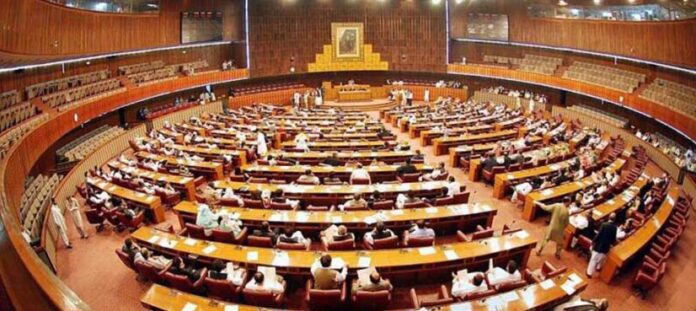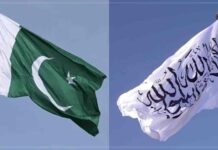Islamabad, May 14: In a huge tussle between Pakistan’s ruling regime and Opposition, the country’s Defence Minister Khwaja Asif and Pakistan Tehreek e-Insaf leader Omar Ayub had a big war of words laced with profanity and vitriol in the National Assembly, over the former saying that the body of Pakistan’s first military dictator General Ayub Khan should be exhumed and hung publically for violating the Constitution.
Making a statement on the matter, Khwaja Asif said on the floor of the National Assembly: “Ayub Khan was the first to violate his oath. He toppled a democratic government. He is the root cause of all the chaos that we are facing today. Therefore, Article 6 should be invoked; his dead body should be exhumed from the grave and be hanged.”
Not taking kindly to the remark, PTI leader Omar Ayub who is both the leader of the opposition and the grandson of Ayub Khan, said that the remarks by Asif were “unwarranted” and that the words used were “un-parliamentary”.
Stating that Ayub Khan was “part of Pakistan’s history”, the opposition leader added that the martial law referred to by Asif had been imposed by Iskander Mirza: “That is a historic fact.”
“I think we’re going in the wrong direction,” the NA speaker said, adding that Ayub had sought a “point of personal explanation” but he was not named by Asif in the first place.
Criticising last week’s “political” press conference by the Director General (DG) of the Armed Forces’ mouthpiece Inter-Services Public Relations (ISPR), Ayub said: “Security agencies cannot indulge in politics as per the Constitution,” adding that they were “tools of the state, not the state itself”.
Quoting Article 7 of the Constitution, he said it did not include security institutions within its ambit of defining the state.
“The state is the federal government, the national and provincial assemblies […] and bodies who can collect taxes. These agencies serve the state, they cannot be the state.”
Citing Article 203 — the oath of an officer— he called the DG ISPR’s press conference “interference in the political realm”, which he said was only for elected officials and political parties.
Ayub Khan was the first Field Marshal of the Pakistan Army and later became the country’s first military dictator. During his tenure, he was also the first leader who abrogated the Pakistan Constitution in 1958 after it was drafted in 1956, gaining unquestioned Presidential powers.
After that, a new one was drafted in 1963 with increased provisions for Presidential powers though it lasted little more than a decade. Post the 1971 Bangladesh Liberation War and Pakistan’s humiliating defeat, the 1963 version was abrogated by former Prime Minister-turned President -Zulfikar Ali Bhutto in 1973.
Since then, this version has served as Pakistan’s Constitution, though it has been subverted and amended several times, with the official amendment count being 26.








